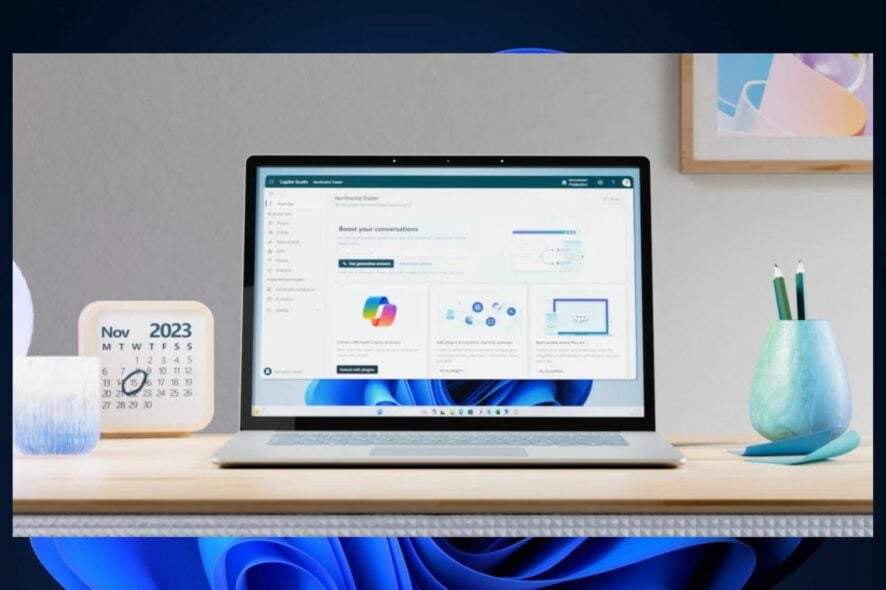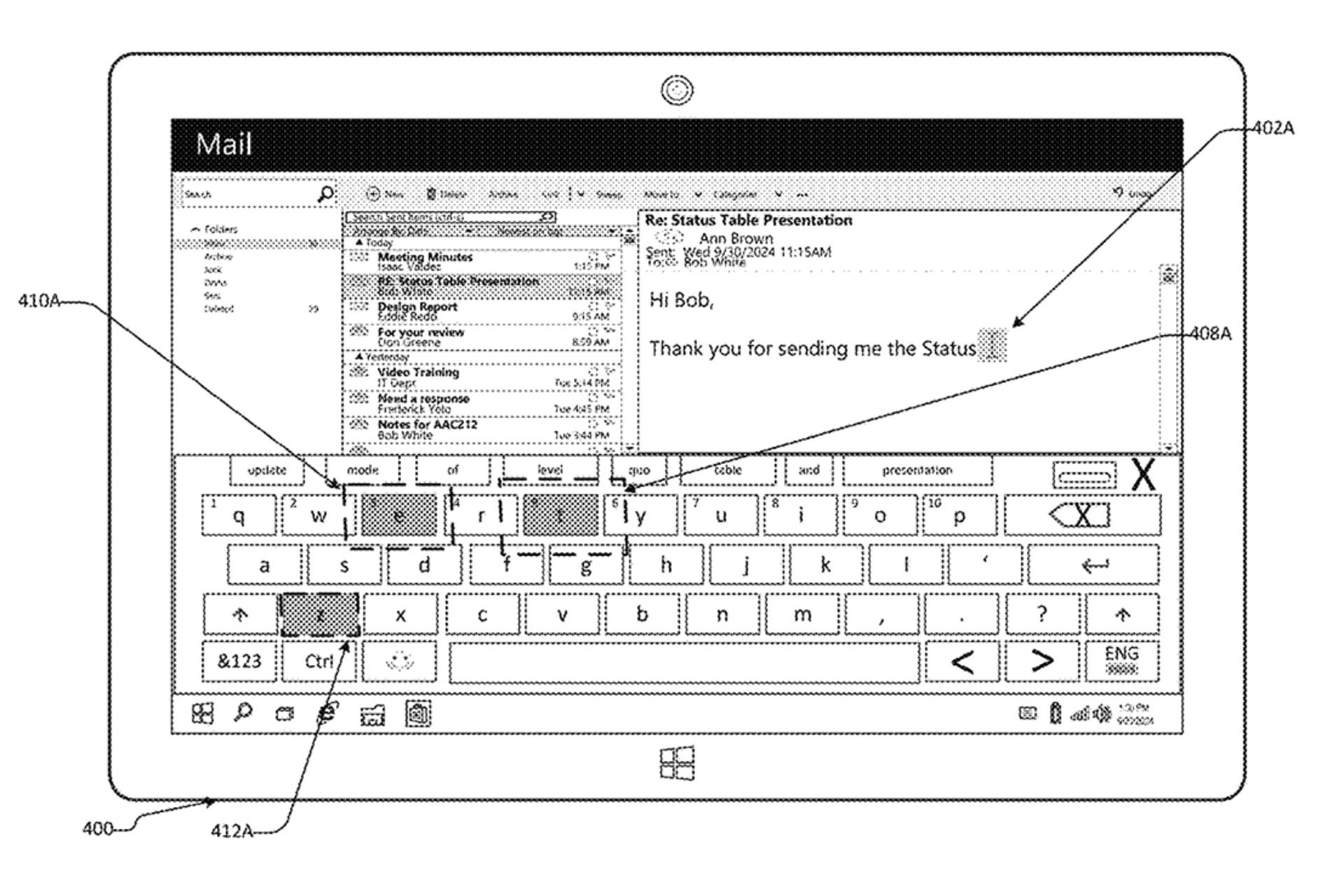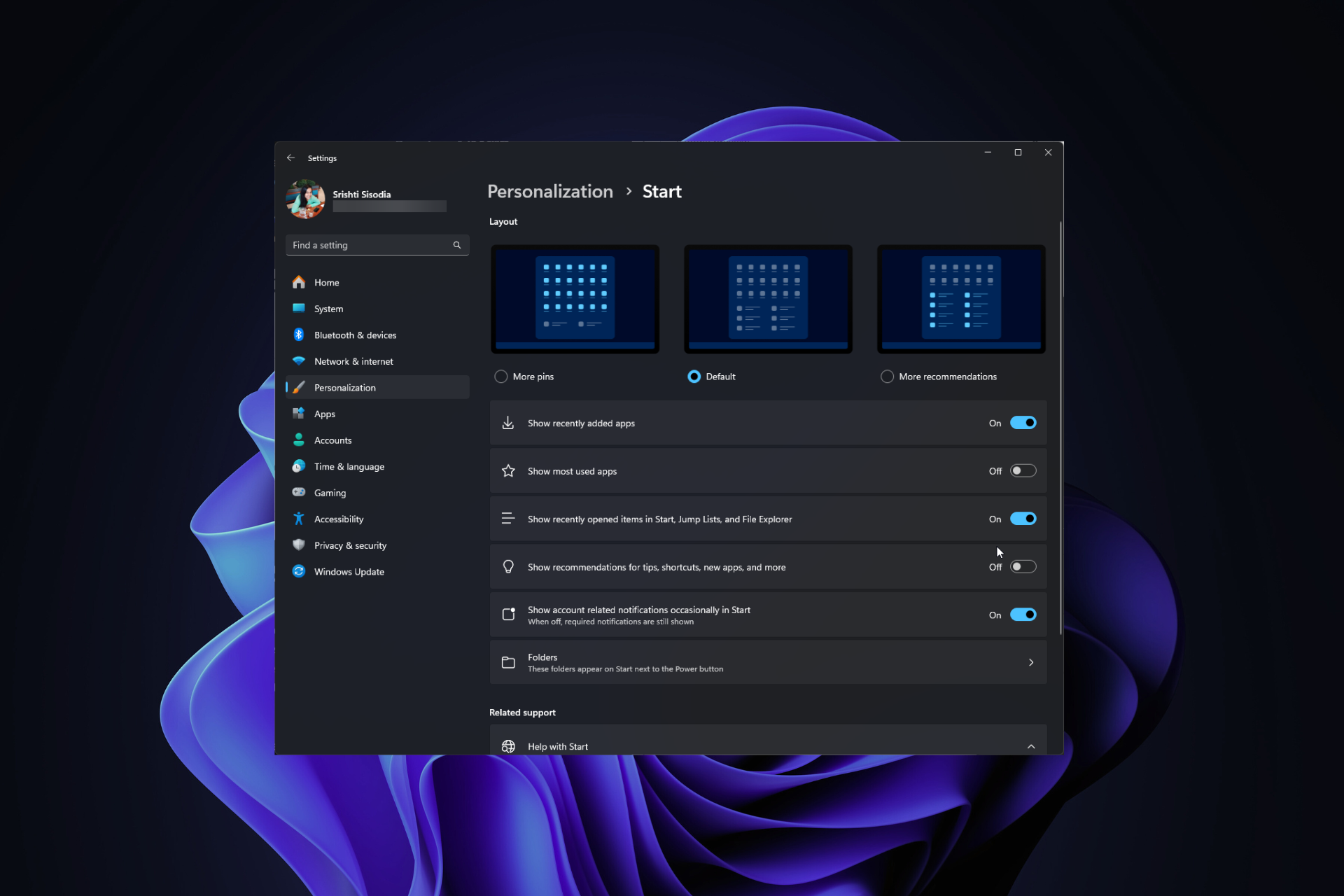Is Microsoft going head to toe with OpenAI, by releasing Microsoft Copilot Studio?
Copilot Studio is now available for preview.
3 min. read
Published on
Read our disclosure page to find out how can you help Windows Report sustain the editorial team Read more

The Microsoft Ignite conference is happening in Seattle these days, and the event is focused on the latest technological advancements aimed at IT professionals, corporate customers, and users everywhere.
This year’s edition saw the announcement of the first Microsoft AI-backed chips, the Microsoft Azure Maia AI Accelerator, and the Microsoft Azure Cobalt CPU, both coming in 2024. Microsoft also unveiled the Azure text-to-speech avatars that will allow users to easily create video content with real-life-looking avatars.
However, the brand-new Microsoft Copilot Studio was announced at the event, merely weeks after OpenAI announced the release of GPTs and the GPT Store coming soon. Similarly, the Microsoft Copilot Studio takes the same approach: basically, Microsoft 365 users will be able to build custom GPTs and generate AI plugins for Copilot.
At Microsoft Ignite 2023, we’re excited to announce Microsoft Copilot Studio, a low-code tool to customize Microsoft Copilot for Microsoft 365 and build standalone copilots.
Microsoft
How different is Microsoft Copilot Studio from OpenAI’s GPTs?
Not so different. Microsoft Copilot Studio lets users build customizable GPTs for personalized or internal Copilots. This means every user can build their own Copilot to handle specific tasks, and companies can also develop internal Copilots that are knowledgeable of the company’s policies and infrastructure.
What’s even more interesting is that Microsoft Copilot Studio is integrated with Microsoft Azure OpenAI Studio, Azure Cognitive Services, Azure Bot Service, and other Microsoft conversational AI technologies, basically giving IT professionals the suitable tools to quickly develop any kind of Copilot.
Plus, similar to building GPTs, building Copilots won’t require users to have deep coding knowledge. OpenAI prided itself on allowing users to build GPTs without any coding skills, but Microsoft is a bit ambiguous on this.
You can use the low-code graphical interface or natural language to build your copilot—and Copilot Studio will help you iteratively refine the conversation design. The product offers a host of features to streamline solution development, including collaborative commenting, graphical multi-authoring, and side-by-side coding views.
Microsoft
However, OpenAI and Microsoft might come at each other (metaphorically speaking) by employing the same strategy: GPT Store, and Copilot Studio. If you remember, the GPT Store will be the place where users can publish and monetize their GPTs. Copilot Studio will allow users to do the same: publish and monetize Copilots.
Users will also be able to create and publish standalone Copilots, that don’t depend on Microsoft. For example, the Redmond-based tech giant says these standalone Copilots can be used on websites, mobile apps, external platforms, and so on.
Plus, the Copilot Studio will allow publishers to oversee updates to these Copilots, plus analyze statistics related to them.
So, as you can see the two companies have a similar business strategy when it comes to AI. However, one does not cannibalize the other, as Copilot is based on OpenAI’s technology, GPT. Even though commercially speaking, they offer the same product, OpenAI still has the final word, that is unless Microsoft comes up with its own AI technology.
And there are signs the Redmond-based tech giant might just do it: if we take a closer look at what’s been happening this year regarding AI, Microsoft has been involved in different capacities. The company is releasing AI technologies constantly, and funding AI research extensively (Project Rumi comes to mind), so it might as well come up with its technology for designing AI models.
But I guess we’ll have to wait and see! What are your thoughts on the new Microsoft Copilot Studio?








